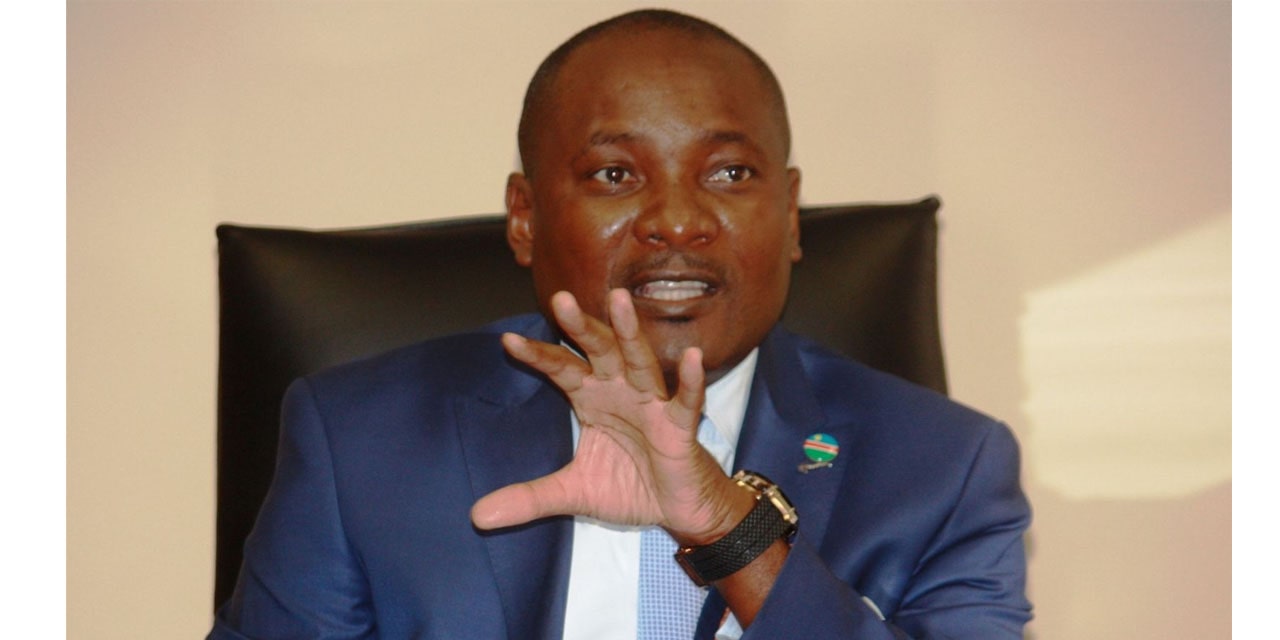The Minister of Environment, Forestry and Tourism, Pohamba Shifeta has reiterated that the status quo of Bwabwata National Park shall remain unchanged, and that a national crisis may arise if domestic animals are permitted to graze within the park, which he says is currently a disease-free zone.
Shifeta today answered to the Parliamentary Standing Committee on Constitutional and Legal Affairs, following a petition submitted to the National Assembly on 19 November 2021 by the Hambukushu Traditional Authority, who are inhabitants of the park.
They want Cabinet to revisit a decision taken in 1999 prohibiting them from owning cattle.
Hearings on the matter commenced last year in March 2022, and today the MEFT was the last stakeholder the standing committee consulted on the matter.
The committee is expected to compile a report which will then be sent to parliament for debate.
Shifeta argued today that he is standing behind the Cabinet decision of 1999 that disallows domestic animals into the park as this will constitute the further spread of the Food and Mouth Disease (FMD) across the park. This he argues will also affect the country’s economy, as castle from a non-free disease area cannot be exported for income nor be consumed as they are redeemed unfit for consumption.
“If we allow cattle to graze in the Bwabwata national park, there will be an economic crisis and those that find themselves farming in this area won’t even be allowed to transport meat products outside the redline, in which Bwabwata currently falls”, Shifeta said.
The Minister further stated that their stance is based on recommendations by the technical committee, submitted in 2014 and comprises of Ministers of Urban and Rural Development, Water Agriculture, Land and Reform and the Environment Forestry and Tourism.
This is despite the standing committee’s concerns over the technical committee’s authenticity, amidst concerns that the committee members did not sign the necessary contracts.
The Minister also highlighted that disputes and embezzlements within communities in the park are among the reasons why they are being challenged to ensure that every community benefits from the income that the park generates. Shifeta informed the parliamentary committee that he had given directives for 50 percent to be equally shared amongst the communities.
He also insists that communities living within the national park benefit more than those living outside the park, while reiterating that communities indeed benefit as conservancies.
Meanwhile, Tjekero Tweya a member of the standing committee was visibly agitated, after learning that directives to the two ministers by President Hifikepunye Pohamba and Hage Geingob to find amicable solutions landed on deaf ears. Letters by the Traditional leaders of the Hambukushu leaders were sent between 2013 and 2016.
Tweya expressed that due to this behaviour, communities in the park feel betrayed and neglected by government because despite several calls to meet the three ministries to discuss the matter, no meeting took place.
He further reprimanded the three ministries for handling the matter in a poor manner. In his defence, Shifeta said that he had several meetings with community leaders in August 2018, but that the meetings did not yield positive results.
Shifeta further noted that he wrote back to the traditional leaders and gave reasons why he could not make it. It is further his position that he instructed the community leaders to rather meet him in Windhoek.
However, this was quickly rejected by Tweya, who pointed out that the two heads of state had already given directives.
“What is there else to be summoned, all three of you were already summoned, but for some reason, you choose not to”, Tweya remarked.
Furthermore, another standing committee member said that she was very disappointed in the Minister for not being fully informed on the matter, blaming officials for misleading the Minister with non-factual findings on the grounds.
“I am disappointed. How can the Minister come here and tell us what we already know? It just tells me that even if I ask him questions, he will not be able to answer me because he is uninformed”, said the member.
In addition to this, the member stressed that when they do their oversight visits they go with experts in the field. According to her, they have learned that their findings are completely different from that of the Minister.
She has since argued that it is dangerous for Shifeta to make national statements based only on the economy and not on the plight of the community.
She reiterated that whatever lawmakers do ought to be in the interest of the people, before adjourning the meeting with directives that the Minister must provide all evidence he has so that the committee can make an informed decision on the issue, which she said is long-standing.




